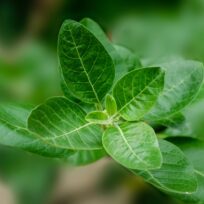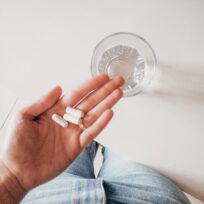What’s in Your Water?
The shocking truth about the UK’s broken water system — and its impact on your health.
You drink it. You cook with it. You trust it.
But what if that trust has been misplaced?
Here in the UK, we’ve long assumed our water is clean and safe. It's monitored, regulated, and comes from the tap without a second thought. But the reality — backed by decades of neglect, political choices, and mounting scientific evidence — paints a very different picture.
At Nousana, we believe in asking better questions. Because when it comes to your health, the quality of your water shouldn’t be an afterthought.

The Scale of the Issue
In 2024 alone, 2,487 serious pollution incidents were recorded in England — the highest number in over a decade. That’s almost double the Environment Agency’s target, and a staggering 31% increase on 2016 levels, despite clear commitments to reduce pollution by 40%.
This isn’t just about overflowing drains or mucky beaches. These incidents include raw sewage spills, toxic chemical discharges, and severe contamination events — each with the potential to damage wildlife, ecosystems, and human health.
And it's not a new problem.
As far back as 2015, the Environment Agency warned that water companies were “not doing enough.” Yet year after year, the numbers keep rising.
What Went Wrong?
In 1989, the UK government privatised the water system, handing it to private companies completely debt-free. To make the deal more appealing, taxpayers covered:
7.6 billion in debt write-offs
£2.3 billion “green dowry” to support future infrastructure
But rather than reinvest in the system, companies began extracting value.
Between 1991 and 2023, water firms paid out over £72 billion to shareholders. To fund this, they took on around £60.3 billion in debt — while infrastructure aged, pipes leaked, and sewage systems buckled under pressure.
Today, we lose over 3 billion litres of water every single day through leaks.
And raw sewage is being dumped into rivers and seas hundreds of thousands of times a year.
So What’s Actually in Our Water?
Here's a breakdown of what may be flowing through your tap — even after treatment:
1. PFAS (“Forever Chemicals”)
These man-made chemicals don’t break down in the environment or the human body. They accumulate over time and have been linked to:
Thyroid disorders
Immune system suppression
Fertility problems
Hormonal disruption
Certain cancers
Potential neurodegeneration
In a 2024 study, 98% of 54 UK river sites tested positive for TFA, a toxic PFAS compound. (Source: University of York & Fidra)
2. Microplastics
Detected in both bottled and tap water, microplastics are small enough to cross biological barriers — including the blood–brain barrier. Research is still ongoing, but early studies suggest they may cause:
Inflammation
Hormonal disruption
Cellular stress
Long-term toxicity risks
3. Heavy Metals
Including lead, arsenic, mercury, and cadmium, these substances can enter water supplies through old pipes, industrial waste, or groundwater contamination. Health effects include:
Kidney and liver damage
Neurological issues
Developmental delays in children
Increased cancer risk
4. Hormone Disruptors & Pesticides
Traces of medications (like the contraceptive pill), cleaning agents, and farm runoff have all been detected in UK water. These can affect:
Reproductive health
Metabolic function
Endocrine balance
Even at low levels, chronic exposure can have cumulative effects over time.
If you're wondering...No, Boiling Doesn't Fix It
Boiling water can help with some bacteria.
But it does nothing to remove PFAS, heavy metals, microplastics, or chemical residues.
In fact, boiling can sometimes concentrate contaminants like nitrates and metals by reducing the water volume.
So… What Now?
This isn’t about panic — it’s about clarity.
The UK water system is in crisis. Not because we lack the means to do better, but because decisions have consistently prioritised profit over people.
And while we may not be able to fix the system overnight, we can protect ourselves.
That starts with understanding what’s really happening — and what’s in your water.
We’re not here just to sound the alarm.
We’re here to help.
Over the coming days, nousana will be sharing:
Trusted water filter reviews that go beyond marketing
A breakdown of which systems can remove which contaminants
Guides on reducing your exposure and supporting detoxification naturally
Continued updates as this situation unfolds
Love,
nousana.
Sources
[1] BBC News – Pollution at 10-year high: https://www.bbc.co.uk/news/science-environment-68767624
[2] The Guardian – Water firms' debt and dividends: https://www.theguardian.com/environment/2023/jul/03/uk-water-firms-debt-dividends-environment
[3] SAS Report – 2024 data: https://www.sas.org.uk/news/pollution-incidents-10-year-high
[4] University of York & Fidra PFAS Study: https://www.york.ac.uk/news-and-events/news/2024/research/pfas-rivers-uk-fidra/
[5] Environment Agency: https://www.gov.uk/government/collections/environment-agency-pollution-incident-data
[6] DEFRA PFAS Guidance: https://www.gov.uk/government/publications/per-and-polyfluoroalkyl-substances-pfas/pfas-in-england
Join the movement
Quick link to our recent most favourite products

Lions Mane

Ashwagandha

Marine Collagen

Rosewater

Coconut Oil
nousana is your place to discover your most fulfilled self, along with others on their path of inner exploration and growth. You're already amazing, just as you are. Let's grow together and become truly incredible!
Everyone's invited!
Join the monthly nousana newsletter now and never miss a beat! We want you and your incredible self to join the movement where you'll enjoy becoming part of our valued community. It's a place to share insights, thought provoking questions and journey towards being your best self. We promise to never spam you and we will never share your data. You can unsubscribe at any time - although we doubt you'll want to!
